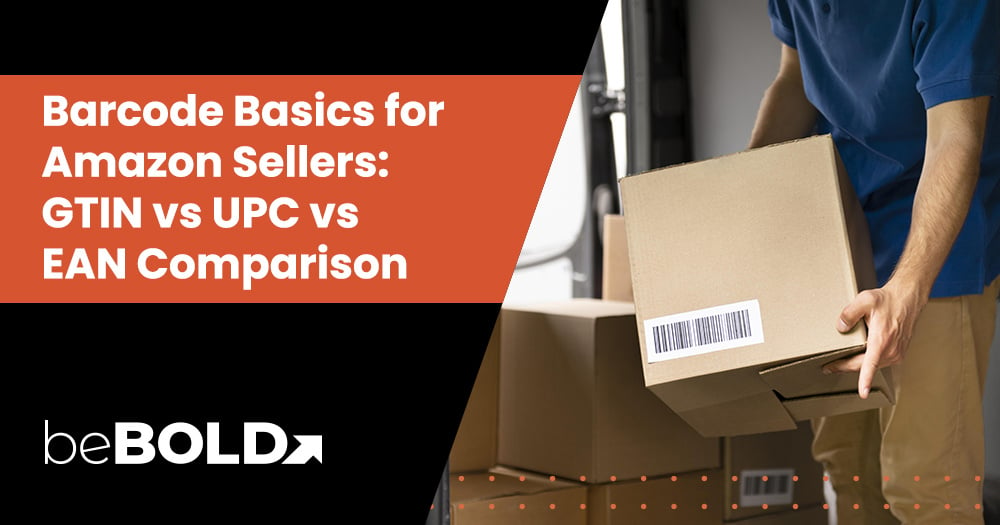Are you wondering if Amazon automation is the golden ticket to passive income or another costly scam? With promises of effortless profits, it’s easy to get swept up in the hype—only to end up with empty pockets and frustration. In this blog, we’ll cut through the noise, explore the risks and rewards, and help you decide if Amazon automation is truly a smart investment or a pitfall to avoid. Let’s find out the truth so you can make an informed decision about your business future.
What is Amazon Automation and What it Means for Sellers?
Amazon Automation encompasses two key models. The first is Amazon Store Automation, where agencies manage an owner’s Amazon store entirely. In this model, the owner covers setup costs and shares a percentage of the store’s turnover or profit with the agency.
The second model is Amazon Business Automation, where owners automate various tasks within their business to achieve independent and streamlined operations. Understanding these two approaches is essential for making informed investment decisions and navigating the potential risks and rewards effectively.
What it means for sellers?
Amazon Store Automation is like handing over the keys to your entire e-commerce store. A third-party agency handles everything—from setup to sourcing, shipping, and customer service, often leveraging artificial intelligence to streamline processes. The appeal? You could earn passive income without lifting a finger. Sounds great, right? But it comes with a catch: you’re trusting someone else with your business.
On the flip side, personal Amazon business automation is all about taking control. You use automation tools to streamline tasks like inventory management and order processing. It’s still your business, your risks, and most importantly, your profits.
Both models offer exciting opportunities, but they’re not without challenges. That’s why it’s crucial to understand the risks and take smart steps to protect your business while maximizing its potential.
The rise of Amazon Automation: Why is it Trending Online?

The promise of passive income has made Amazon automation an attractive option for many entrepreneurs. Its appeal lies in the prospect of expertly managed Amazon stores with minimal time investment, offering the potential for significant income streams. Outsourcing complex tasks such as inventory management, customer service, and product sourcing is especially appealing to novices and busy individuals.
Moreover, the allure is often heightened by compelling marketing, success stories, and the use of data-driven selling software. However, it is crucial to proceed with caution. High upfront costs, loss of control, reliance on third-party agencies, and the risks posed by market saturation or policy changes can turn this opportunity into a financial pitfall. Therefore, becoming an informed seller is essential for navigating the challenges and maximizing the potential of Amazon automation.
Is Amazon Automation a Scam?
Not entirely, but it's a space where caution is crucial. Some legitimate services manage Amazon stores for sellers, handling everything from sourcing to customer service. However, these services often require hefty upfront fees and a share of the profits, which can be risky.
The problem arises when promises of high returns lure sellers but end up with underperforming stores. Many agencies make most of their money from these upfront payments, not from the actual store's success. As a result, some sellers lose more than they earn, leaving them frustrated and financially strained.
While not all Amazon automation services are scams, the potential for loss is significant if you choose the wrong provider. To protect yourself, conducting thorough research, verifying claims, and ensuring the agency's track record aligns with its promises is vital. Due diligence is the key to avoiding scams and making an informed decision.
Pros of Automated Amazon Store
Automated Amazon stores offer various benefits, such as minimal time investment, with agencies handling everything from inventory management to customer service. They also prioritize customer satisfaction, ensuring high ratings and repeat sales.
Additionally, professional management can simplify scaling through systematic inventory replenishment and increased sales. We will discuss these benefits in detail below.
Minimum Time Costs
In an automated Amazon store, experienced professionals handle all the tasks—product sourcing, customer service, shipping, and supplier negotiations in an online store. With years of experience in these areas, this takes the workload off the seller, saving time and allowing them to focus on other projects. Sellers can potentially earn passive income from a professionally managed store. However, hiring an automation agency doesn't mean sellers can step away completely. Regularly checking performance and staying involved is important to maintain control and stay updated on how the business is doing.
Prioritizing Customer Satisfaction
Customer satisfaction is the cornerstone of any successful e-commerce business, and Amazon is no exception. Providing exceptional service is essential for earning positive reviews, fostering customer loyalty, and boosting product rankings on Amazon's search results. With an automation agency managing operations, sellers benefit from expert customer management at every stage—before, during, and after a sale.
These agencies ensure efficient order fulfillment, prompt responses to queries, and proactive handling of returns and refunds. Their expertise in resolving customer issues helps maintain a strong reputation, encouraging repeat purchases. By leveraging professional support, sellers can enhance customer satisfaction, a critical factor for long-term success on Amazon.
Scaling Your Amazon Business
A major benefit of using Amazon automation services for ecommerce is the ability to scale your business quickly. Growth becomes much easier once the agency sets up a stable business model. These agencies often have access to a large network of suppliers, helping you expand your product catalog with less risk. They also use sales forecasting to manage inventory better, ensuring you have enough stock without overbuying or running out.
In addition, they apply effective marketing strategies to boost your store's visibility and sales. However, as your business grows, so do the risks. Regularly checking your store's performance and the agency's work is essential to ensure everything runs smoothly.
Cons of Amazon Automation Store
Automated Amazon stores come with challenges, including high upfront costs, financial risks from profit fluctuations, and potential policy violations by third-party agencies. We will explore these drawbacks in detail below.
Significant Financial Commitment
Hiring an Amazon automation agency requires a significant financial commitment. Upfront fees often range from $10,000 to $30,000 or more, with ongoing profit-sharing further adding to the costs. Sellers also bear expenses like product sourcing, increasing their overall investment.
Ideally, store profits should offset these costs, but factors such as market shifts, poor agency performance, or policy violations can result in disappointing returns or losses. In such cases, sellers risk losing their initial investment while facing ongoing agency fees and inventory expenses, creating a substantial financial burden.
Unstable Conditions
Operating an automated Amazon store means handing over control to an external agency, which can create uncertainty for the store owner. While agencies may promise attractive profits, actual performance can vary due to market fluctuations, competition, policy changes, or operational issues.
The store's success depends heavily on the agency's competence, and failure to meet objectives can lead to poor outcomes. This high reliance and limited oversight of daily operations creates a potentially unstable environment. Choosing the right automation agency minimizes these risks and ensures long-term stability.
Risk of Amazon Policy Violations
Every Amazon seller must follow the platform's policies to avoid serious consequences like account suspension or termination. While a reliable automation agency aims to stay within Amazon's guidelines, the risk of policy violations still exists.
These violations—whether due to mistakes or intentional shortcuts to boost sales—can result in financial losses, damage to the seller's reputation, or even permanent account closure. Since the fallout ultimately impacts the seller, it's essential to monitor the agency's actions closely and ensure strict compliance with Amazon's rules to protect the business and avoid costly penalties.
How to Spot an Amazon Automation Scam (Red Flags)
Amazon Automation scams often disguise themselves in attractive garbs. Here's the catch - not every sparkling opportunity is gold. To differentiate scams from legitimate services, awareness about red flags, such as exorbitant FBA upfront fees, lack of control over Amazon automation, unwarranted dependency on third parties, ambiguous legal and tax obligations for Amazon sellers, fabricated testimonials, and fraudulent claims of voiding market saturation, is crucial.
Below, we have discussed them in detail, so let's check them out.
Amazon FBA upfront fees
Scammers typically demand hefty upfront fees, citing various reasons:
- Guaranteed high returns: The most common bait is where sellers are promised significantly high returns against their upfront fees.
- Research and launch costs: Initial fees are often justified as an investment towards product research, store set-up, and launch marketing.
- Management costs: Scammers might demand upfront fees for agency management services like listing optimization, inventory management, and customer service.
Remember: legitimate automation companies will always assure you of the value they bring to your business without demanding exorbitant starting fees.
Lack of Control Amazon automation
While Amazon automation implies third-party intervention, it’s crucial to remember that complete surrender of control can spell trouble:
- Ownership rights: There's a risk that the automation agency might hold substantive control over your account, limiting your access and control.
- Transparency in operations: Scammers avoid divulging complete operational details, keeping sellers in the dark about day-to-day activities, financial transactions, and significant decisions.
- Profit visibility: Deceptive agencies often obscure profit details, leading to potential discrepancies in shared profits.
In all scenarios, lack of control breeds deception. Hence, establishing control-access boundaries with clear terms and conditions is crucial before signing an agreement.
Dependency on third parties
Considerable reliance on third-party agencies dangles multiple risks:
- Performance risk: You are betting on the third party's competence for your profitability— a venture not devoid of pitfalls.
- Account Security: Dependence on a third party heightens the risk of fraudulent activities, potentially endangering your Amazon seller account.
- Brand Reputation: Outsourcing customer decisions to agencies can impair brand reputation if mishandled or if customers prefer direct engagement.
Remember, a scam is likely waiting under the cloak of redirection. Therefore, making informed decisions, commanding some control, and maintaining constant vigilance becomes vital.
Legal and tax obligations for Amazon sellers
Many merchants overlook legal and tax obligations while signing up with an automation agency. In doing so, they expose themselves to severe legal repercussions. Here are frequent legal loopholes scammers exploit:
|
Obligation |
Possible scam |
|
Sales Tax Collection |
Scammers may neglect it, leading to legal issues with tax authorities. |
|
Policy Violations |
Unethical practices or policy violations can cause penalties or account suspension. |
|
Liability coverage |
Without coverage, sellers bear the brunt of legal issues that might occur. |
Thus, ensuring clearance of your legal and tax obligations is crucial to safeguard you in case of disputes or policy violations.
Fake Testimonials
Fake testimonials can efficiently lure sellers into promising Amazon automation services. Here's how to detect them:
- Stock images: Fake testimonials often use stock images instead of real photos of reviewers.
- Vague descriptions: These reviews broadly generalize the service without delving into specifics.
- Instant successes: The promise of overnight success or profits is a strong red flag.
- Identity verification: Lastly, run quick web checks to verify the existence of the testimonial giver.
Remember, a fair company will always showcase authentic and verified testimonials and value constructive criticism in shaping its services.
Market saturation
Market saturation is another aspect to consider. Can an agency guarantee success while managing multiple stores similar to yours?
- Product overlap: If several of their clients sell identical products, it increases competition, reducing your potential market share.
- Diverse strategy: Does the agency have a diverse strategy for each client, assuring competitive differentiation?
- Performance correlation: Does your store's performance rely on the performance of other stores managed by the agency?
Remember, an agency promising standard results across the board probably lacks a strategic approach suited to individual business needs and market realities.
Alternatives to Amazon Automation
There are alternatives for sellers who'd rather not dive into full-scale automation. They can automate specific tasks such as inventory management, order fulfillment, and customer service while retaining control over central business decisions to ensure healthy profit margins.
Sellers can also partner with Amazon Marketing Agencies, offering responsible business automation while maintaining transparency and accountability. Ultimately, the decision rests on your business size, future plans, risk appetite, and level of desired managerial involvement.
How to automate your business responsibly
Responsible automation balances efficiencies and control. Here's how you can orchestrate it:
- Software solutions: Use automation software for repetitive tasks like inventory management, accounting, and customer service.
- Outsource strategically: Instead of full-scale automation, outsource specific tasks or critical areas that require professional expertise.
- Stay involved: Even during automation, stay involved in decision-making and retain control of critical aspects like finances and brand management.
- Security measures: Protect your data and account by implementing strong security practices against fraudulent activities.
Remember: Automation is effective when it aids productivity and profitability without undermining the essence of business—human intervention and decision-making.
Best practices for Amazon sellers
For Amazon sellers seeking to break the mold, a few practices can make a significant difference:
- Research thoroughly: Don't just trust anyone with your business. Refer to testimonials, check financials, and talk to existing clients before partnering.
- Stay updated: Keep updated about Amazon’s policies, market trends, and your performance metrics.
- Customer-centric approach: Prioritize customer service and maintain high standards in order fulfillment to keep your customer base growing.
- Diversified product portfolio: Maintain a diversified product range to appeal to a broad customer base and mitigate risks associated with selling a single product.
Remember, success on Amazon requires a mix of smart strategies, performance monitoring, and adapting to changes promptly.
Ready to Grow Your Amazon Business? Let beBOLD Digital Help!
At beBOLD Digital, we make growing your Amazon business simple and sustainable. From brand protection to SEO and smart advertising, we handle everything to help your brand thrive. Whether you're looking to expand globally or just need expert account management, we’ve got you covered. Our goal is to help you succeed while keeping your profits strong. Ready to take your Amazon business to the next level?
Let’s chat and get started with beBOLD Digital today!
Finding the Perfect Fit: Choosing the Right Amazon Automation for Your Business
Choosing the right Amazon automation depends entirely on your business requirements, risk appetite, and growth plans. Balance out your desire for hands-off business management against the potential pitfalls this choice might trigger. Mull over questions relating to profitability, time investments, control matters, legal and taxation implications, and threats from market saturation.
While full-scale automation can appear tempting with its enticing promise of passive income and expert management, don't overlook the potential hazards—massive upfront investments, chances of policy violations, and complete lack of control over business operations. Alternatively, instead of automating your entire business, you could choose to automate certain repetitive tasks while maintaining hands-on control of other business aspects.
Whichever you opt for, due diligence and vigilant tracking could help you avoid pitfalls while maximizing benefits. Ultimately, chart a path that aligns with your personal business vision, risk tolerance limits, and growth ambitions.
Frequently Asked Questions
Can I trust Amazon Automation companies?
While scams exist, legitimate Amazon Automation companies also operate responsibly. These companies have established reputations, satisfied clients, and sustain transparent operations. Always perform thorough due diligence before partnering.
What is the best way to automate my Amazon business?
The ideal automation aligns with your business size, future expansion plans, desired control levels, and risk tolerance. Even within automation, maintain control over significant aspects, stay involved in decision-making, and be vigilant about real-time business health.
How can I protect myself from Amazon Automation scams?
Perform exhaustive research on the prospective automation agency. Don't fall for fake testimonials, and use due diligence to recognize and avoid high upfront fees, unrealistic profit arbitration, unwarranted third-party dependence, or opaque legal and tax obligations.
What percentage of Amazon is automated?
Amazon employs large-scale automation across its operations, particularly in its FBA model. However, the percentage varies across processes and tasks. Automation benefits never undermine the need for human intervention, which remains pivotal for strategic and customer-focused decisions.
What does AWS use for automation?
Amazon Web Services (AWS) uses various automation tools, including AWS CloudFormation, AWS Systems Manager, or AWS Managed Services, to automate tasks like cloud provisioning, operational tasks, and infrastructure management— enhancing operational productivity and efficiency.
Get a Free Brand Audit from beBOLD Digital!







Comments